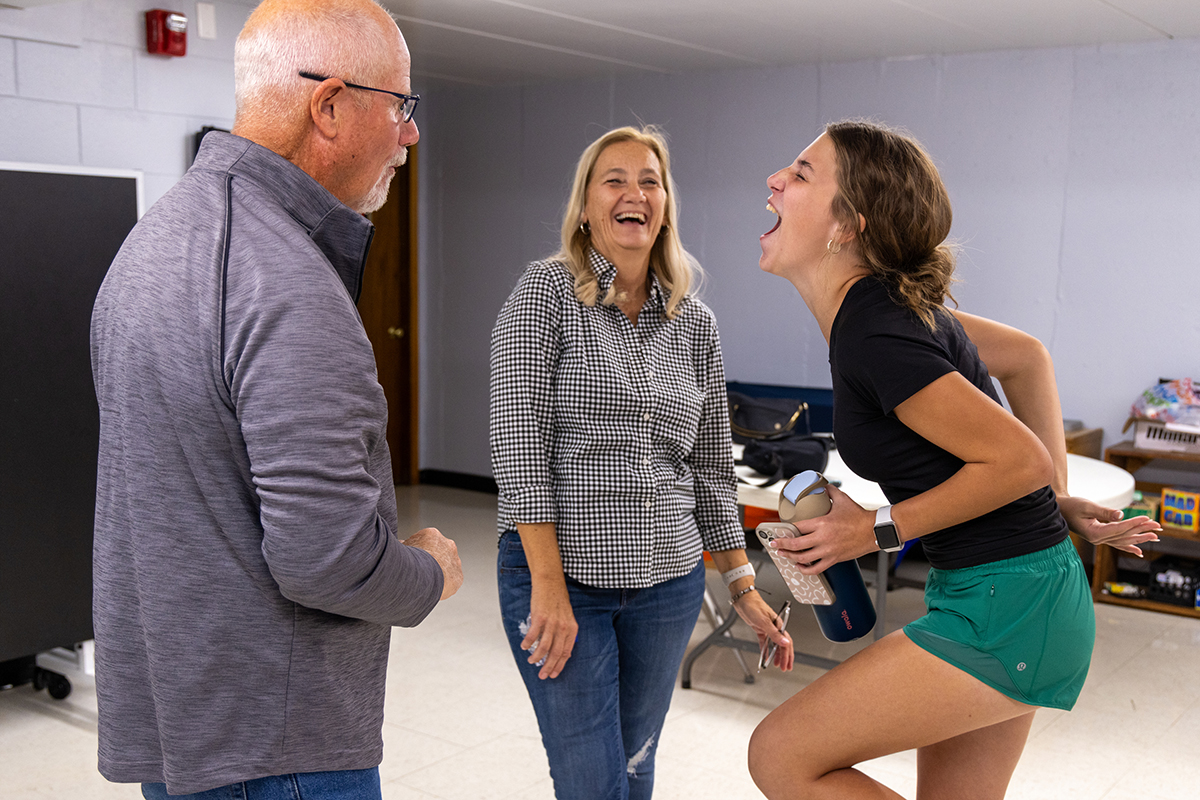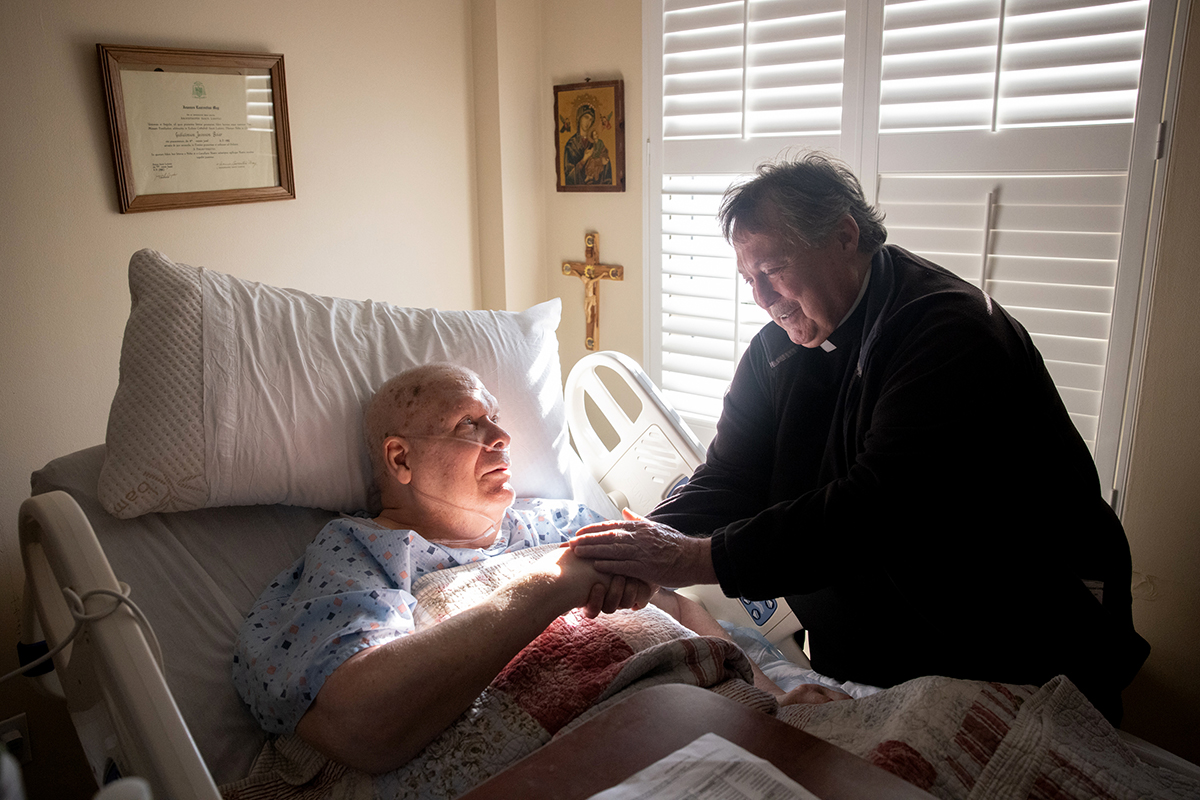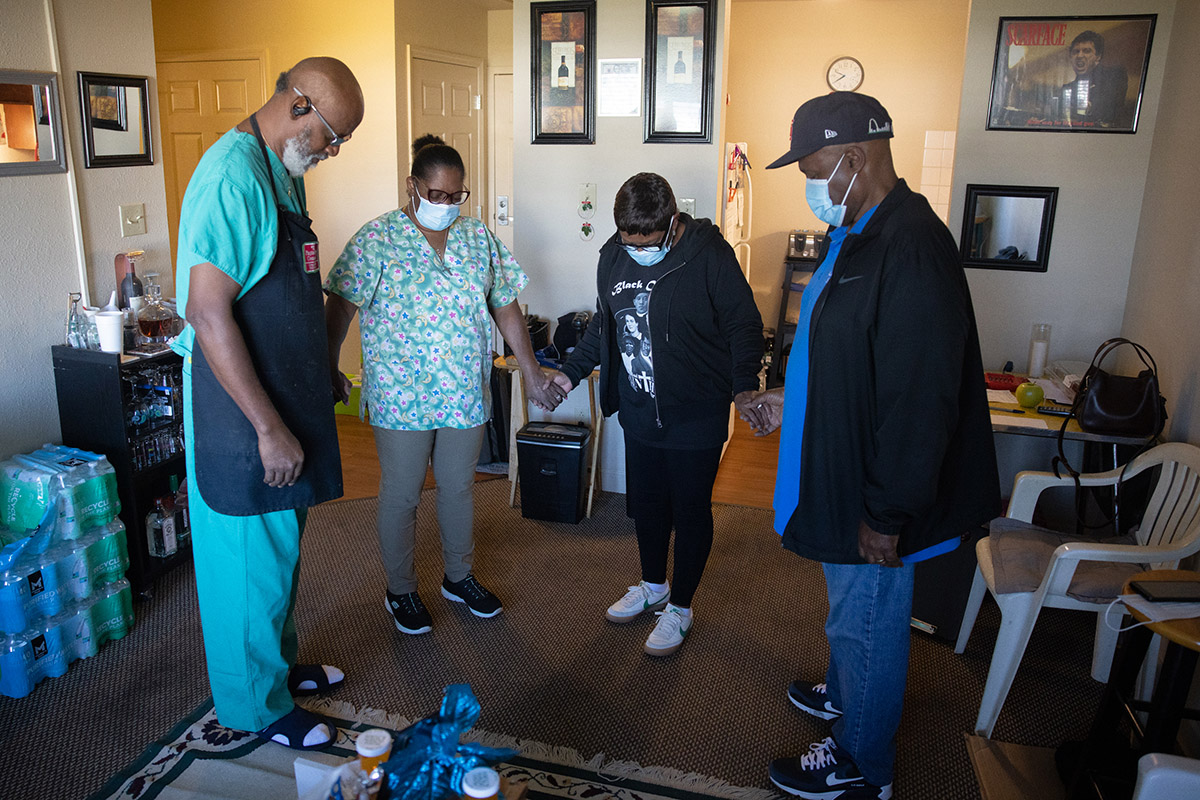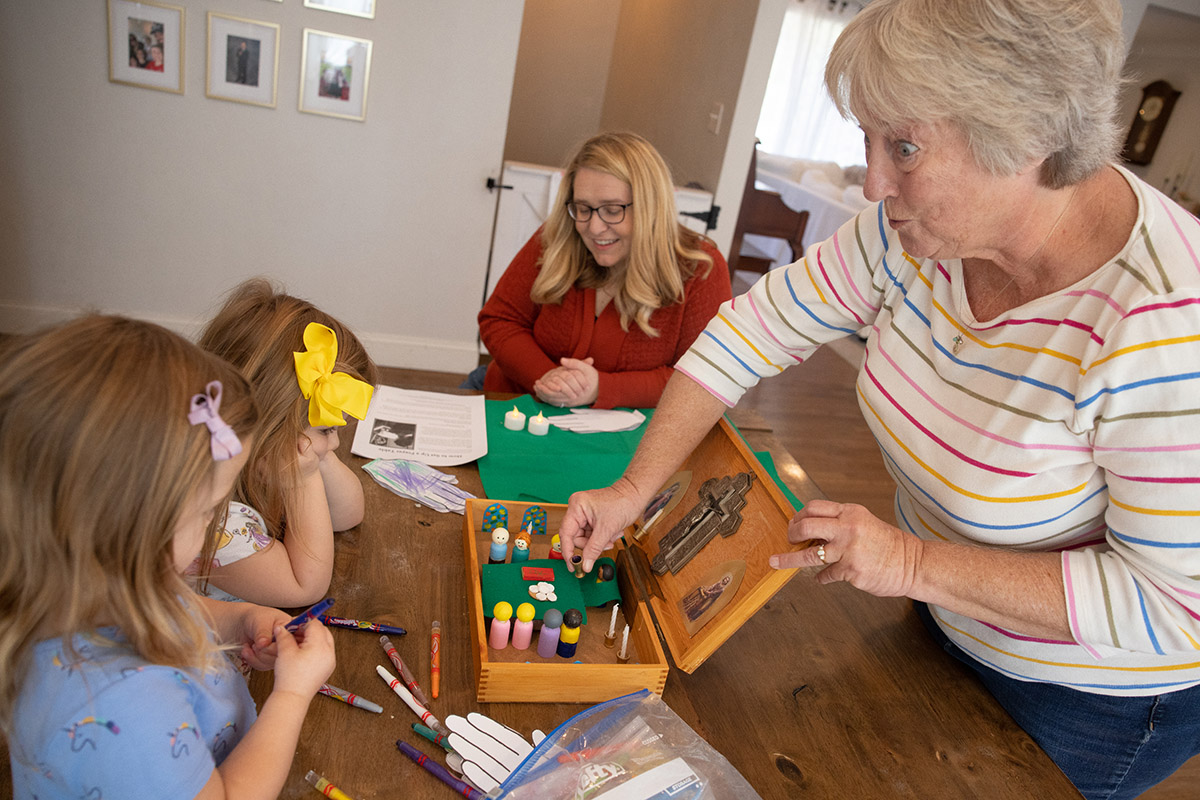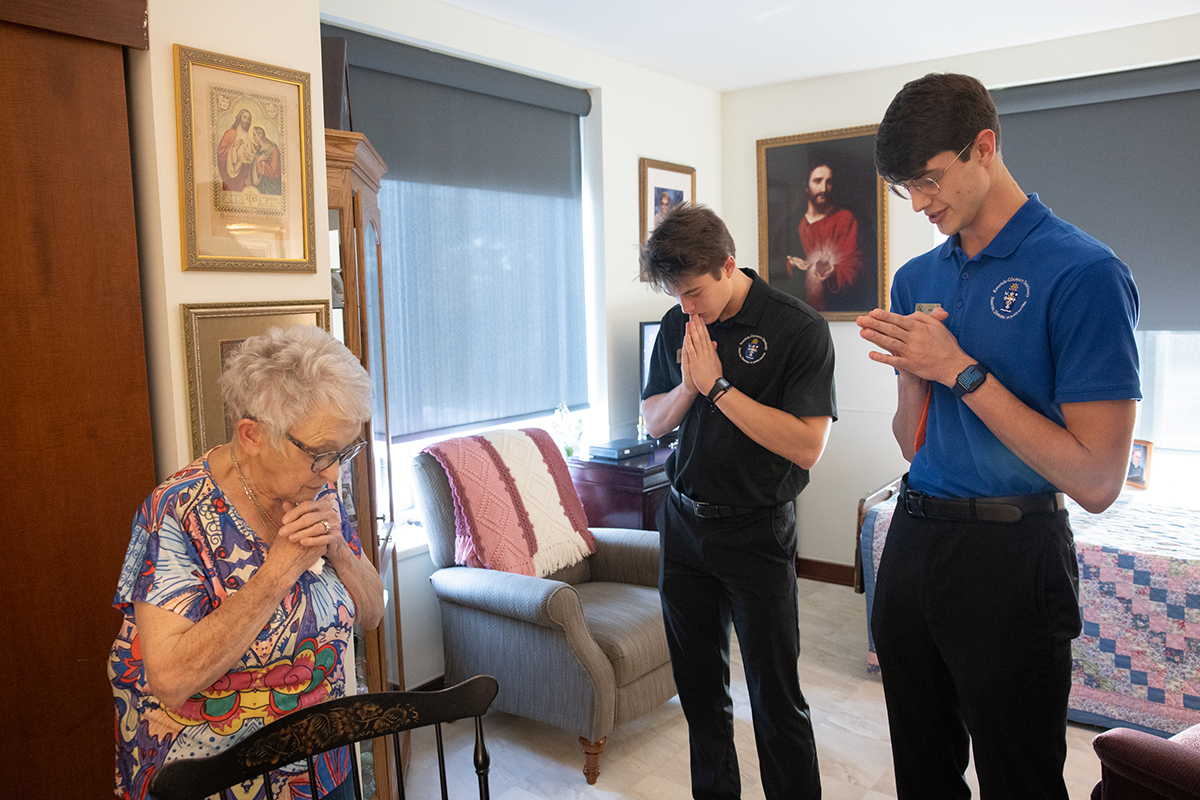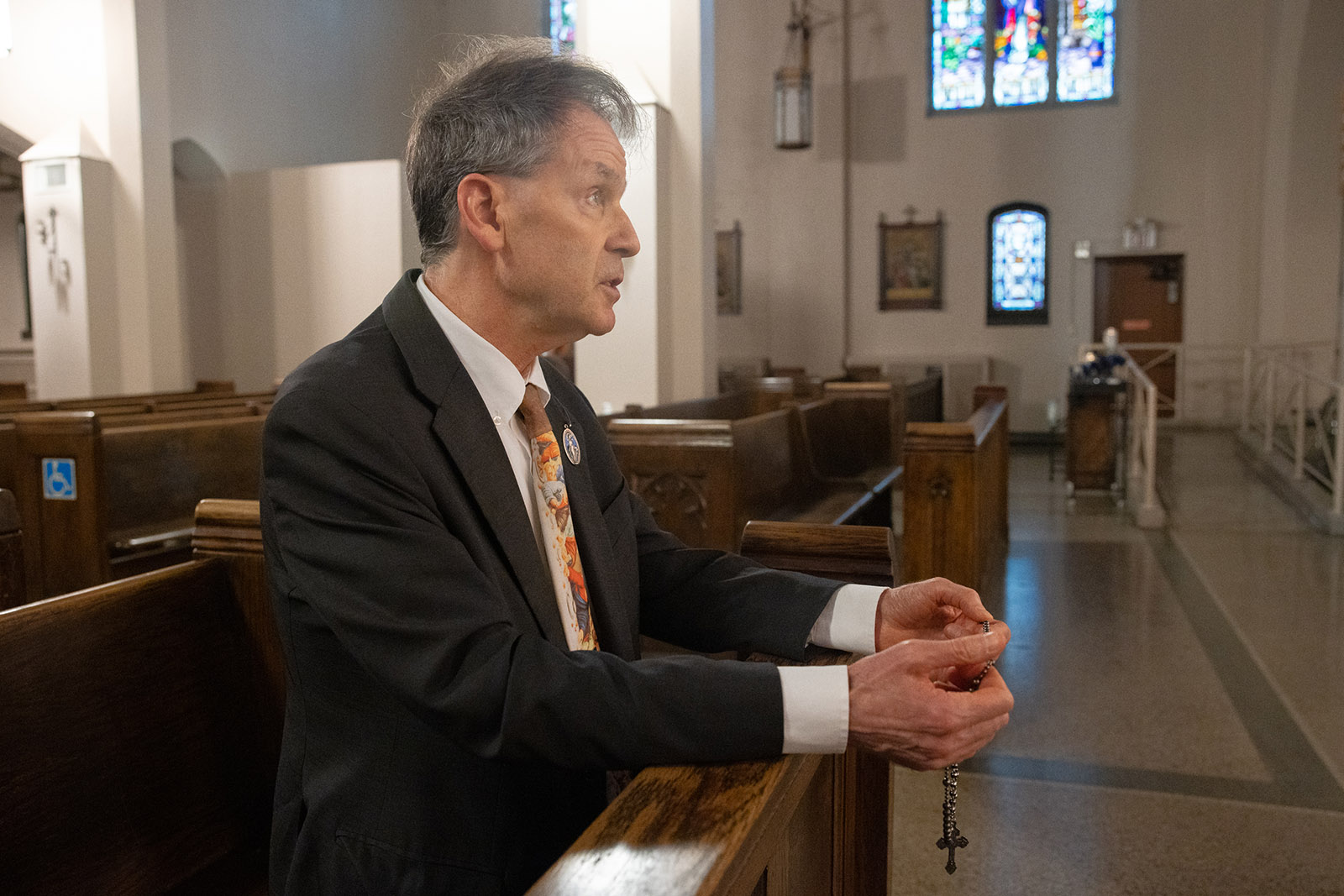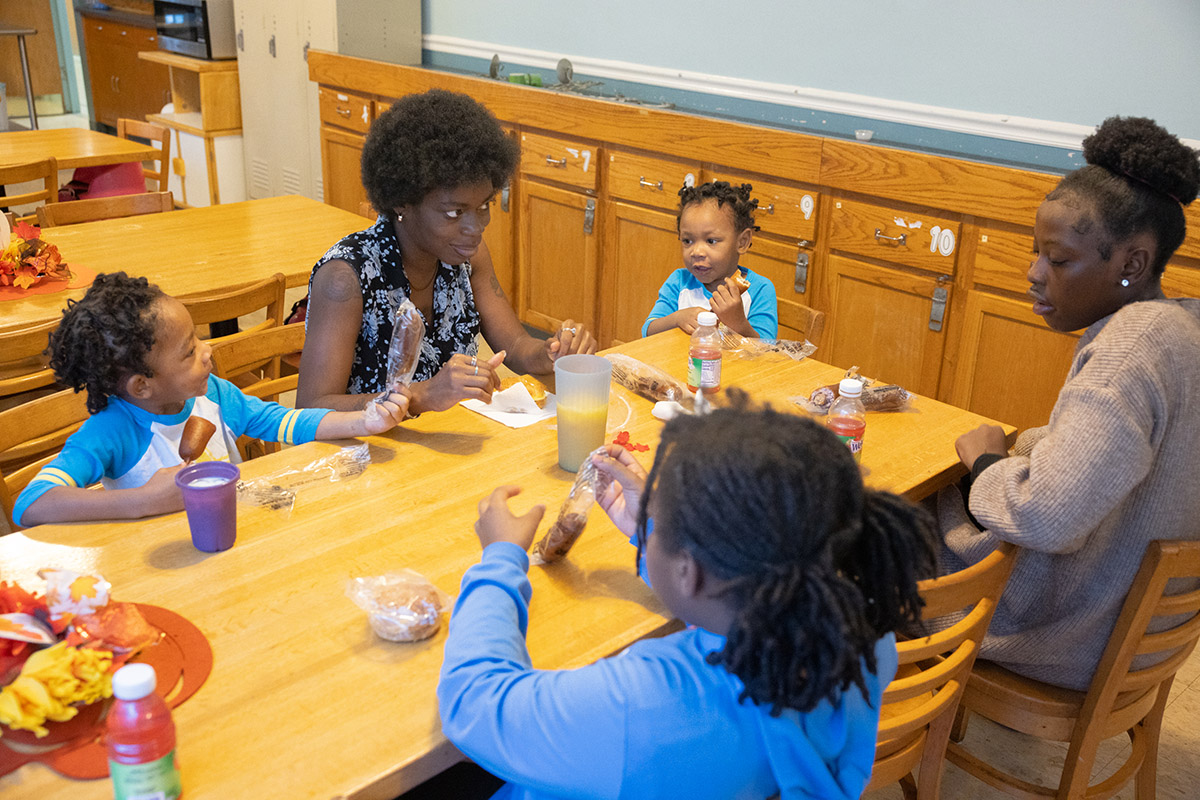Cardinal Ritter Senior Services staff receive specialized training to support senior residents living with memory loss
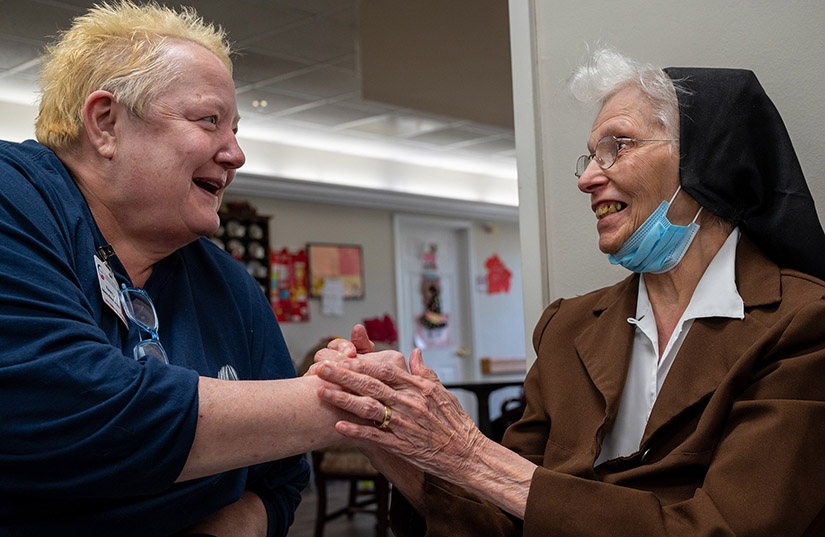
Karen Ledbetter knows the specialized care that’s needed for people who live with memory loss.
Several years ago, the administrator of Mother of Perpetual Help residence, located on the campus of Cardinal Ritter Senior Services in Shrewsbury, learned about Teepa Snow and her Positive Approach to Care training for caregivers who work with people with various forms of dementia.
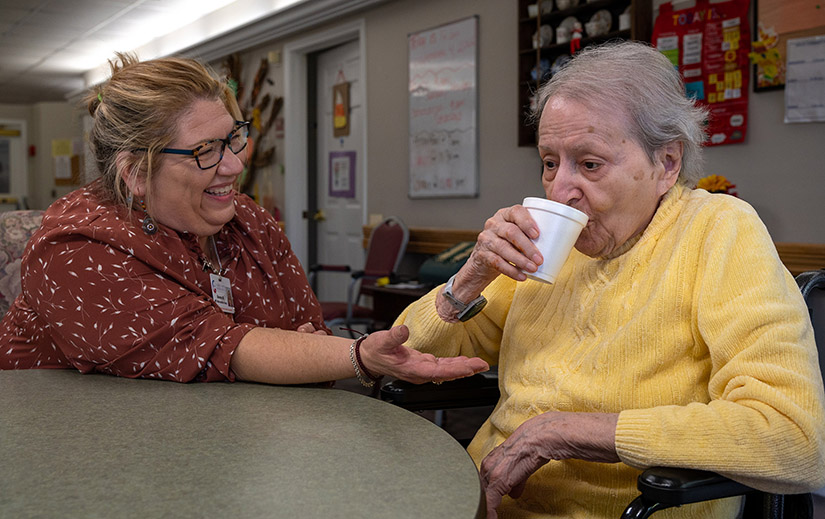
Snow’s training came from her years of experience as an occupational therapist in various clinical settings, including long-term elder care. Care for people with dementia should have a relationship-focused approach, Snow has said, with an emphasis on having the caregiver meet the person where they’re at and maintaining flexibility and responsiveness.
“When people’s brains change, we need to be willing to change as well,” Snow said in a video she made on TikTok. “The goal is to help you to do what you do better by understanding what’s working and what’s not and what you could possibly do about it.”
The whole approach was so attractive to Ledbetter, who first attended one of Snow’s trainings in 2019, that she wanted it to be implemented among all of the employees at Mother of Perpetual Help residence. Cardinal Ritter Senior Services is a federated agency of Catholic Charities of St. Louis.
“A lot of it is common sense, but as an occupational therapist (Snow) realized there were different, simple methodologies that could be implemented to help make the person more comfortable, more relaxed,” Ledbetter said. “A happy person is easier to take care of — you meet them in their time and space.”
Mother of Perpetual Help residence, which provides assisted living and memory care, this year became the first facility in Missouri to be certified as a Positive Approach to Care community. Sixty-five employees — including workers in health care, dining, laundry services, activities and administration — have or are currently undergoing training.
Mother of Perpetual Help provides traditional assisted living services as well as two memory care communities for individuals with dementia. A $6.5 million, 20,000 square-foot expansion effort that is expected to open in January will be dedicated to two additional memory care communities. With the expansion, the residence will be able to accommodate up to 56 memory care residents.
The goal of any approach is to move from a public space to a personal connection and into a relationship that has value and purpose, Snow said. The caregiver’s willingness and ability to be flexible and responsive is the key to optimizing possibilities.
One of the key components of Positive Approach to Care is Snow’s Hand Under Hand technique. In this situation, the caregiver engages in a handshake with the person, guiding their hand from underneath. It allows the person with dementia to have control over the situation when working together on a task. The technique also promotes friendly and comforting physical touch and provides feedback and communication between two people.
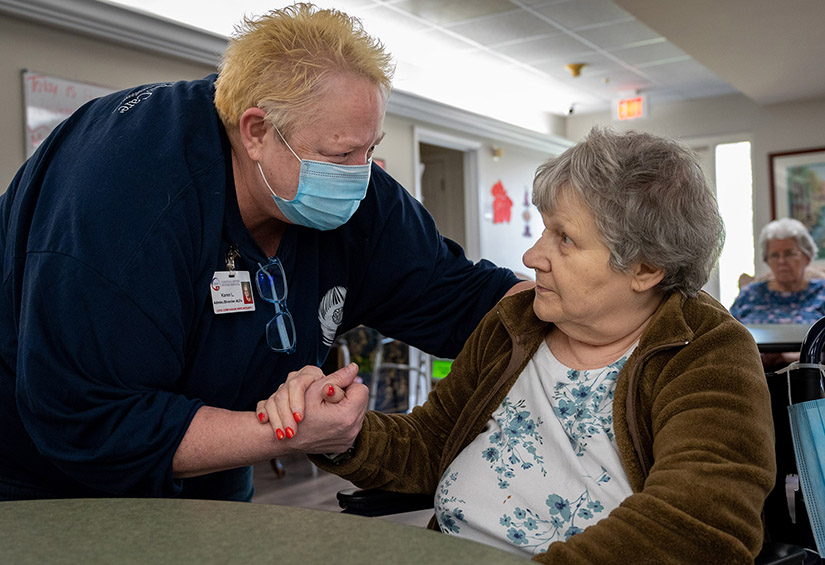
“There are contact points in the palms, and it makes people feel more secure,” Ledbetter said. “As they age, we can help them with things like dining and drinking. We’re doing it with them, not to them.”
Other techniques used in the Positive Approach to Care model include the caregiver seeking permission from the person before giving help and asking for their help with the task. Because of changes in vision with people who have dementia, Ledbetter said it is important for the caregiver to keep his or her body at or below the person’s eye level and maintain a calm, reassuring voice throughout the interaction.
Visual gestures, with short and simple directions, also are important. Ledbetter noted that people with dementia on average lose one out of every four words. “So it’s fewer words, and more cueing with hand gestures,” she said.
Positive Approach to Care training is expected to be offered to employees at other Cardinal Ritter Senior Services facilities and programs, said CEO Chris Baechle, who brought Snow to St. Louis in 2019 for the original training that Ledbetter attended.
Baechle said he’d like to see the techniques from Positive Approach to Care shared more widely within the community, including through parishes of the archdiocese, including through Catholic Charities’ Parish Ambassador Program.
“We know — especially going through COVID — that not everyone wants to go to a communal setting, and they want to stay at home as long as they can,” he said. “So can we teach some of those techniques to the community to as part of our outreach?”
Ledbetter said she encouraged the staff to see that the techniques they’re learning go well beyond the work setting. “You’re going to have these skills to take home, to church, to your neighbors, to anyone else you might see,” she said. “We’re going to unofficially touch many more lives than we could ever count.”
>> More about dementia:
• There are over 120 different types, causes and forms of brain change under the umbrella of dementia.
• About 50% of people living with dementia are unaware that they are experiencing changes, a condition know as anosognosia.
• With dementia, at least two parts of the brain are actively dying.
• It is progressive, meaning that it’s always changing, first in brain chemistry and then structure changes
• It is a chronic condition, meaning there is no cure or treatment that will stop or reverse it.
• It is terminal.
Source: Teepa Snow’s Positive Approach to Care teepasnow.com/about-dementia/
>> Learn more
Positive Approach to Care: teepasnow.com
Teepa Snow on TikTok: @teepasnow
Mother of Perpetual Help residence: stlreview.com/3teP1qs
Karen Ledbetter knows the specialized care that’s needed for people who live with memory loss. Several years ago, the administrator of Mother of Perpetual Help residence, located on the campus … Cardinal Ritter Senior Services staff receive specialized training to support senior residents living with memory loss
Subscribe to Read All St. Louis Review Stories
All readers receive 5 stories to read free per month. After that, readers will need to be logged in.
If you are currently receive the St. Louis Review at your home or office, please send your name and address (and subscriber id if you know it) to subscriptions@stlouisreview.com to get your login information.
If you are not currently a subscriber to the St. Louis Review, please contact subscriptions@stlouisreview.com for information on how to subscribe.

